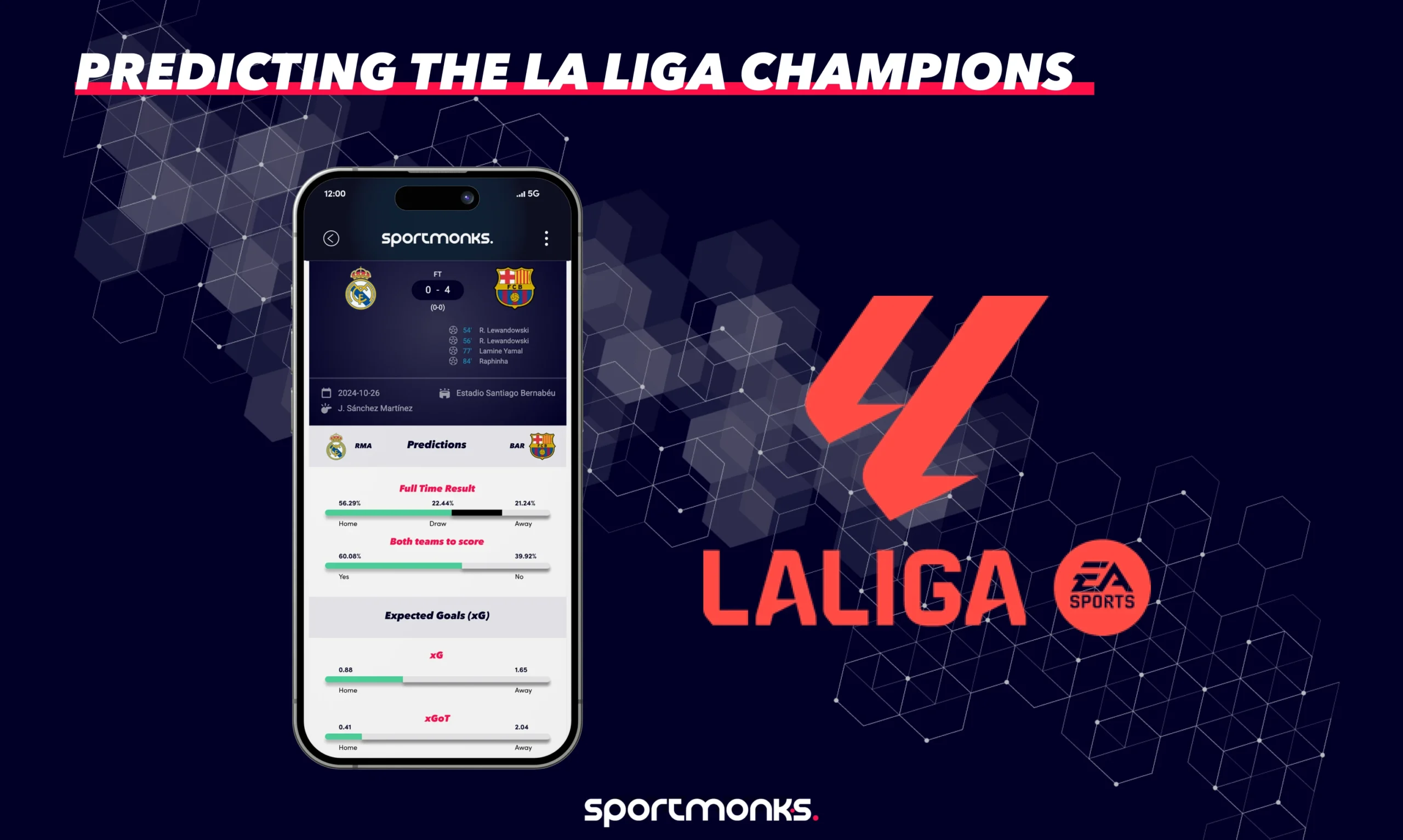
Contents
History of La Liga
La Liga’s roots trace back to 1929 with the formation of the Liga Nacional de Fútbol Profesional. Before this, regional competitions were the primary form of organized football in Spain. The inaugural season featured ten teams, with Barcelona winning the first title. Key milestones in La Liga’s history include:
– 1929: The inaugural season of La Liga, marking the beginning of organized national league football in Spain.
– 1940s: The emergence of Valencia as a dominant force, winning multiple titles.
– 1950s: The rise of Real Madrid’s “Golden Era”, led by Alfredo Di Stéfano, which saw them win numerous domestic and European titles.
– 1980s: The dominance of “La Quinta del Buitre” (The Vulture’s Cohort) at Real Madrid, featuring Emilio Butragueño and other notable players.
– 1990s: The rise of Johan Cruyff’s “Dream Team” at Barcelona, introducing a new style of play and laying the foundation for future success.
– Early 2000s: The era of “Los Galácticos” at Real Madrid, with superstars like Zinedine Zidane, Luís Figo, and De Lima Ronaldo.
– Late 2000s and 2010s: The dominance of the Lionel Messi-led Barcelona and the Cristiano Ronaldo-led Real Madrid, arguably the greatest individual rivalry in football history.
All these led to continued growth in global viewership and commercial success establishing La Liga as one of the top football leagues in the world.
Structure and format of La Liga
La Liga consists of 20 teams that compete in a double round-robin format. This means each team plays every other team twice during the season—once at their home stadium and once at their opponent’s stadium—for a total of 38 matches. The season typically runs from August to May.
– Points system: Teams earn 3 points for a win, 1 point for a draw, and 0 points for a loss.
– League table: Teams are ranked in a league table based on their accumulated points. Tie-breakers include head-to-head points, head-to-head goal difference, overall goal difference, goals scored, fair play points (based on disciplinary records).
– European competitions qualification: The top four teams in La Liga qualify for the UEFA Champions League group stage. The fifth-placed team qualifies for the UEFA Europa League group stage. The winner of the Copa del Rey (the Spanish domestic cup competition) also qualifies for the Europa League group stage. The sixth-placed team qualifies for the UEFA Europa Conference League Play-off round.
– Relegation: The bottom three teams in the league table at the end of the season are relegated to the Segunda División (the second tier of Spanish football). They are replaced by the top two teams from the Segunda División (the champion and the runner-up) and the winner of the Segunda División play-off.
Key teams in La Liga
La Liga boasts a rich history filled with iconic clubs that have shaped Spanish and world football. While the league is highly competitive, a few teams have consistently been at the forefront, achieving significant success and captivating global audiences.
– Real Madrid: Arguably the most successful club in European football history, Real Madrid has won La Liga a record 35 times. Known for their “Galácticos” era and their dominance in the Champions League, Real Madrid boasts a history filled with legendary players and iconic moments. Their rivalries with Barcelona (El Clásico) and Atlético Madrid (El Derbi Madrileño) are among the most intense in world football.
– FC Barcelona: Barcelona is another global football powerhouse, known for its distinctive “tiki-taka” style of play and its emphasis on developing homegrown talent. They have won La Liga 27 times and have had some of the greatest players in football history grace their ranks, including Johan Cruyff, Lionel Messi, and Xavi Hernandez. Their rivalry with Real Madrid, El Clásico, is one of the most-watched sporting events in the world.
– Atlético Madrid: While historically overshadowed by Real Madrid and Barcelona, Atlético Madrid has emerged as a major force in recent years, winning La Liga in 1996, 2014, and 2021 under the management of Diego Simeone. Known for their disciplined defense and counter-attacking style, Atlético provides a strong challenge to the traditional dominance of the “big two.”
– Valencia CF: Valencia has a rich history in La Liga, winning the title six times. While they haven’t achieved the same level of consistent success as Real Madrid and Barcelona, they remain a significant club with a passionate fanbase and a history of producing talented players.
– Athletic Club (Athletic Bilbao): Athletic Club is unique in that they have a policy of only fielding players born in the Basque Country. Despite this self-imposed restriction, they have won La Liga eight times and are one of only three clubs (along with Real Madrid and Barcelona) never to have been relegated from the top flight.
– Sevilla FC: While not as consistently challenging for the La Liga title as Real Madrid, Barcelona, or Atlético Madrid, Sevilla has established itself as a major force in Spanish and European football, particularly in the UEFA Europa League. They hold the record for most Europa League titles (7), demonstrating their strength in continental competitions. Sevilla is known for its passionate fanbase and its ability to develop and nurture talented players. They have won La Liga once, back in 1946, but their recent successes have primarily come in cup competitions.
Famous players in La Liga
La Liga has been home to some of the most talented and iconic footballers in history. From legendary figures who defined eras to current stars captivating audiences worldwide, these players have contributed to La Liga’s global appeal and rich history.
Iconic players of the past
– Alfredo Di Stéfano (Real Madrid): One of the greatest footballers of all time, Di Stéfano led Real Madrid to unprecedented success in the 1950s, winning five consecutive European Cups (now Champions League). His influence on the club and the game is undeniable, defining an era of dominance.
– Johan Cruyff (FC Barcelona): A revolutionary player and manager, Cruyff’s influence on Barcelona’s style of play, known as “Total Football,” (i.e possession game) is still felt today. His “Dream Team” in the early 1990s laid the foundation for the club’s future success.
– Telmo Zarra (Athletic Bilbao): A prolific goal scorer, Zarra holds the record for most goals scored in La Liga history for Athletic Bilbao (251). His legacy at Athletic Bilbao is legendary, and the top scorer award in La Liga is named the “Zarra Trophy” in his honor.
– Hugo Sánchez (Atlético Madrid, Real Madrid): A prolific and acrobatic striker, Sánchez was one of the most feared goal scorers in La Liga during the 1980s and 1990s, known for his spectacular goals and celebrations.
– Raúl González (Real Madrid): A prolific goal scorer and Real Madrid legend, Raúl holds the record for most appearances for the club. He was known for his intelligent play, leadership, and clinical finishing.
– Lionel Messi (FC Barcelona): Arguably the greatest player of all time, Messi spent the majority of his career at Barcelona (2004 – 2021), breaking countless records and winning numerous titles (including 7 ballon do’rs at the Catalan club). His dribbling, vision, and goal-scoring ability were unmatched, defining an era of Barcelona dominance.
– Cristiano Ronaldo (Real Madrid): A global icon and one of the greatest goal scorers in football history, Ronaldo had a highly successful spell at Real Madrid, forming an intense rivalry with Messi and between Barcelona & Real Madrid.
– Ronaldinho (Barcelona): A magician on the ball, Ronaldinho brought joy and flair to La Liga with his incredible dribbling skills, creativity, and infectious smile. He played a key role in Barcelona’s resurgence in the early 2000s.
– Sergio Ramos (Real Madrid): A legendary defender and captain, Ramos was known for his leadership, defensive prowess, and surprising goal-scoring ability. He was a key figure in Real Madrid’s success for many years.
– Andrés Iniesta (Barcelona): A midfield maestro, Iniesta was known for his exceptional passing, vision, and close control. He was a key player in Barcelona’s and Spain’s dominance in the late 2000s and early 2010s.
Current stars
– Robert Lewandowski (Barcelona): One of the most prolific strikers of his generation, Lewandowski has brought his goal-scoring prowess to Barcelona, continuing his remarkable career in La Liga.
– Vinícius Júnior (Real Madrid): A dynamic and skillful winger, Vinícius Júnior has emerged as one of Real Madrid’s key players, known for his pace, dribbling, and attacking flair.
– Pedri (Barcelona): A highly talented young midfielder, Pedri is considered one of the brightest prospects in world football, known for his vision, passing, and technical ability.
– Antoine Griezmann (Atlético Madrid, Barcelona): A versatile forward with excellent goal-scoring and playmaking abilities, Griezmann has been a key player for Atlético Madrid in recent years.
– Jude Bellingham (Real Madrid): A highly talented young midfielder, Bellingham has quickly become a key player for Real Madrid, showcasing his all-around ability and maturity beyond his years.
– Lamine Yamal (Barcelona): A highly touted young winger from Barcelona’s famed La Masia academy, Yamal is already making waves in La Liga and is on track to be one of the best youth players in La Liga history.
International impact
La Liga clubs have consistently been major players in European and international competitions, showcasing the league’s quality and contributing to the global spread of Spanish football. Their successes have not only brought prestige to their respective clubs but also elevated the profile of La Liga on the world stage.
UEFA Champions League/European cup
Spanish clubs have a dominant record in the UEFA Champions League/European Cup, with Real Madrid leading the way:
– Real Madrid: With a record 15 European Cup/Champions League titles, Real Madrid is the most successful club in the competition’s history. Their dominance, particularly in the 1950s and more recently in the 2010s which included a first ever threepeat of the UCL, has solidified their status as a global football giant.
– Barcelona: Barcelona has also enjoyed considerable success in the Champions League, winning the competition 5 times. Their triumphs, often associated with innovative playing styles and iconic players like Johan Cruyff and Lionel Messi, have left a lasting impact on European football.
– Atlético Madrid: While they haven’t won the Champions League, Atlético Madrid has reached the final three times (1974, 2014, and 2016), demonstrating their competitiveness at the highest level of European club football.
UEFA Europa League/UEFA Cup
Spanish clubs have also been successful in the UEFA Europa League (formerly the UEFA Cup)
– Sevilla: Sevilla holds the record for most Europa League titles, with seven victories. Their consistent success in this competition has earned them a reputation as Europa League specialists.
– Atlético Madrid: Atlético Madrid has also won the Europa League three times.
– Valencia: Valencia has won the UEFA Cup once.
UEFA Super cup
The UEFA Super Cup, contested between the winners of the Champions League and the Europa League, has also seen significant success for Spanish clubs. Real Madrid and Barcelona are among the most frequent winners of this trophy. Influence on Playing Style and Tactics La Liga has also had a significant influence on playing styles and tactics in global football. The “tiki-taka” style popularized by Barcelona under Pep Guardiola has been widely adopted and adapted by teams around the world. The emphasis on technical skill, possession-based football, and intricate passing combinations has become a hallmark of Spanish football.
Important football data and Sportmonks coverage
In today’s football, data analysis has become essential for understanding player performance, team tactics, and overall league trends. La Liga, with its rich history and global following, is no exception. Data provides objective insights that enhance the understanding and enjoyment of the beautiful game. At Sportmonks, we bring this data to life for La Liga enthusiasts, offering comprehensive coverage of Spain’s top-tier competition through our flexible subscription plans. Instead of a perpetually free option, we provide a 14-day free trial with any plan, allowing users to explore our detailed La Liga insights—think live match updates, advanced metrics like xG, and in-depth player stats—before committing. Our offerings include the European Plan, which covers La Liga among 27 major European leagues starting at around €39 monthly, the Worldwide Plan, encompassing 111 top leagues including La Liga from approximately €129 monthly, the Enterprise Plan, spanning over 2,200 leagues with custom pricing for those needing exhaustive coverage, and the Custom Plan, where you can tailor your La Liga data alongside other leagues to suit your exact needs. Pricing adjusts based on your billing choice—monthly for flexibility or yearly for savings—making it easy to find a cost-effective fit.
The importance of football data in La Liga
Data analysis in La Liga allows us to:
– See players in a new light: We can go beyond just goals and assists. Data shows us everything a player does on the field, like passes, tackles, and dribbles. This helps us see the full picture of their contribution.
– Uncover hidden talents: La Liga is full of amazing players. Advanced stats like xG, xA, and key passes help us compare them and see who’s really creating chances and finishing them effectively.
– Crack the tactical code: La Liga teams are known for their clever tactics. Data helps us understand how they play, where they attack, and how they defend. This is like having a secret decoder ring for the matches!
– Find the perfect fit: Clubs can use data to scout players who have the right skills to shine in La Liga. This helps them make smarter decisions when signing new players.
– Boost the fan experience: Stats, charts, and cool tools help fans understand the game better and make watching La Liga even more fun. It’s like having your own personal analyst while you watch the matches!
FAQs about the Spanish La Liga
- Santiago Bernabéu (Real Madrid): A historic stadium with a rich history and a capacity of over 80,000.
- Camp Nou (Barcelona): The largest stadium in Europe, with a capacity of over 99,000, and a symbol of Catalan identity.
- Metropolitano Stadium (Atlético Madrid): A modern stadium known for its passionate atmosphere.
- Mestalla (Valencia): A historic stadium with a steep and intimidating atmosphere.
- Deportivo La Coruña: Won La Liga in 1999-2000 and reached the Champions League semi-finals in 2004.
- Villarreal: Consistently competes for European places and reached the Champions League semi-finals in 2006 and 2022.
- Real Sociedad: Won La Liga twice, most recently in 1982.


